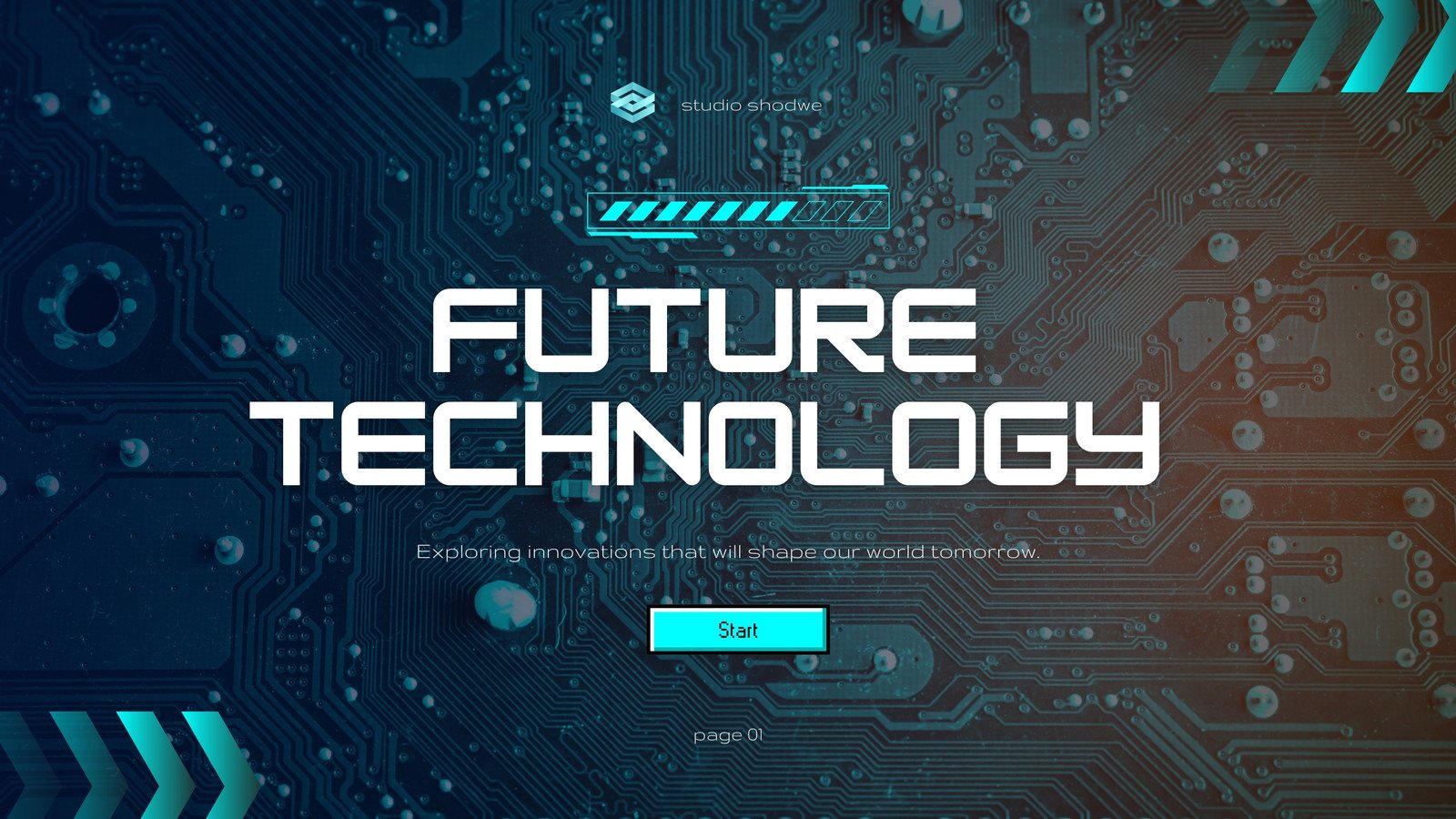Technology is evolving at an unprecedented rate, shaping the way we live, work, and interact with the world. From artificial intelligence to quantum computing, these advancements are pushing the boundaries of what’s possible. As we step into the future, here are 10 emerging technologies that are revolutionizing industries and redefining our daily lives.
1. Artificial Intelligence and Machine Learning: Smarter Than Ever
Artificial Intelligence (AI) and Machine Learning (ML) are no longer futuristic concepts; they are deeply integrated into our daily routines. AI-powered virtual assistants, facial recognition, and recommendation algorithms are just the beginning. Industries like healthcare, finance, and automotive are leveraging AI to optimize operations, enhance customer experiences, and improve decision-making.
AI is also driving automation, with self-learning systems capable of analyzing vast amounts of data in seconds. As AI continues to evolve, ethical concerns surrounding bias, privacy, and job displacement remain key topics of discussion.
2. Quantum Computing: A Leap Beyond Classical Computing
Quantum computing is set to revolutionize problem-solving in fields like cryptography, drug discovery, and complex simulations. Unlike traditional computers that process information in binary (0s and 1s), quantum computers use qubits, allowing them to perform multiple calculations simultaneously.
Companies like IBM, Google, and startups like Rigetti Computing are racing to develop practical quantum computers. While still in the experimental phase, breakthroughs in this technology could lead to unimaginable advancements in science and industry.
3. 5G Connectivity: The Future of Communication
The rollout of 5G networks is unlocking a new era of connectivity with lightning-fast speeds and ultra-low latency. This technology enhances mobile communication, enables real-time data transfer, and supports the Internet of Things (IoT) on a massive scale.
5G is expected to revolutionize smart cities, autonomous vehicles, and remote healthcare by providing seamless and reliable connections. As more regions adopt 5G, businesses and consumers alike will experience a shift in how they interact with digital services.
4. Biotechnology and Genetic Engineering: Rewriting DNA
The advancements in biotechnology and genetic engineering are paving the way for medical breakthroughs. CRISPR gene-editing technology has made it possible to modify DNA with precision, potentially curing genetic disorders, eliminating hereditary diseases, and even creating disease-resistant crops.
Personalized medicine is another promising development, where treatments are tailored based on an individual’s genetic makeup. With continued research and ethical considerations, biotechnology could transform healthcare as we know it.
5. Renewable Energy and Sustainable Tech: Powering a Greener Future
The need for sustainable energy solutions has never been greater. Innovations in solar, wind, and battery technology are making renewable energy more efficient and accessible. Companies are investing in advanced energy storage systems, electric vehicles, and smart grids to reduce carbon emissions and combat climate change.
Additionally, breakthroughs in nuclear fusion could provide a virtually limitless and clean energy source, eliminating our dependence on fossil fuels. With global efforts to transition towards sustainability, these technologies will play a crucial role in shaping the future of energy consumption.
6. Augmented Reality (AR) and Virtual Reality (VR): A New Dimension
AR and VR technologies are transforming entertainment, education, and even workplace training. Augmented Reality overlays digital information onto the real world, enhancing experiences in gaming, shopping, and navigation. Virtual Reality, on the other hand, immerses users in entirely digital environments, opening doors for remote collaboration, medical simulations, and immersive storytelling.
With companies like Meta (formerly Facebook) investing heavily in the Metaverse, AR and VR are set to redefine how we socialize, learn, and experience digital content.
7. Autonomous Vehicles: The Self-Driving Revolution
Self-driving cars are no longer science fiction. Major automakers and tech companies, including Tesla, Waymo, and NVIDIA, are developing autonomous vehicles that use AI, sensors, and advanced algorithms to navigate without human intervention.
While challenges such as regulation, safety concerns, and infrastructure remain, the adoption of autonomous vehicles could lead to reduced accidents, lower emissions, and improved transportation efficiency. The future of mobility is set to be safer, smarter, and more autonomous.
8. Space Exploration and Commercial Space Travel
The space industry is undergoing a major transformation with private companies like SpaceX, Blue Origin, and Virgin Galactic leading the charge in commercial space travel. Reusable rockets, lunar exploration missions, and the potential colonization of Mars are closer to reality than ever before.
Space tourism is also emerging as a new frontier, with civilians experiencing weightlessness and viewing Earth from space. As technology advances, the dream of interplanetary travel and deep-space exploration becomes increasingly feasible.
9. Blockchain and Decentralized Finance (DeFi): The Future of Transactions
Blockchain technology is revolutionizing financial systems by enabling decentralized, secure, and transparent transactions. Cryptocurrencies like Bitcoin and Ethereum have paved the way for decentralized finance (DeFi), allowing users to borrow, lend, and trade without traditional banks.
Beyond finance, blockchain is being used in supply chain management, voting systems, and digital identity verification. Its potential to eliminate fraud, enhance security, and improve efficiency makes it one of the most promising emerging technologies.
10. Robotics and AI Integration: The Rise of Smart Machines
Robots powered by AI are becoming more sophisticated, performing complex tasks in manufacturing, healthcare, and even customer service. From robotic surgeons assisting in operations to AI-driven customer support bots, automation is streamlining industries and improving efficiency.
Humanoid robots and AI assistants are also making their way into homes and workplaces, raising questions about human-robot collaboration and ethics. As robotics continues to evolve, we may see a future where machines seamlessly integrate into our daily lives.
Final Thoughts: Embracing the Future
The future is unfolding before our eyes, and these emerging technologies are set to reshape the world in ways we can only imagine. While they bring exciting possibilities, they also raise ethical, regulatory, and societal questions. Embracing innovation while ensuring responsible development will be key to navigating this technological revolution.




